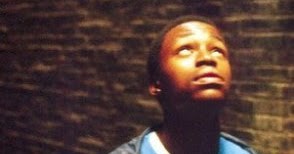Night Blog
In the book Night by Elie Wiesel, the author describes his memories before and during his forced stays at various Nazi concentration camps. Elie goes through several transformations throughout the book, by the end of the book he even considers his reflection as someone else. In the beginning of the book, Elie is a very pious person, he devotes his life to his religion: “I was almost thirteen and deeply observant. By day I studied Talmud and by night I would run to the synagogue to weep over the destruction of the Temple.”(Wiesel, 3). In this quote, Elie is proud of how devoted he is, he is a 13 year old already deeply devoted to his religion. This shows how Elie was before, his will to live WAS his religion, he lived to follow his god. When a fellow worshipper, Moishe the Beadle asks why Elie prays, Elie answers, “‘ Why did I pray? Strange question. Why did I live? Why did I breathe? ‘I don't know,’ I told him, even more troubled and ill at ease. ‘I don't know.’” (Wiesel, 4). His religion is a major part of his life, he doesn’t know why he prays, but he does it anyways, as it is his instinct to worship. Soon the Nazi’s begin to move ever closer to Sighet (Elie’s hometown), they eventually reach Sighet and start the process of transporting Sighet’s Jews to Concentration Camps. Elie’s beliefs are crushed when he arrives at the camp. He is separated from everyone in his family except his father, and when he see’s the horrors at the camp, Elie feels abandoned by god. Elie says, “For the first time, I felt anger rising within me. Why should I sanctify His name? The Almighty, the eternal and terrible Master of the Universe, chose to be silent. What was there to thank Him for?” (Wiesel, 33). The first few moments at the camp scarred Wiesel and changed his beliefs, at this point he feels as if he shouldn’t worship a silent, betraying god. By turning on his God, he is turning on himself, as theology reason to live. This process of self-betrayal changes Wiesel by “removing the curtain in front of his eyes”, it opens up his narrow and overly positive view of the world.
Another change we see with Wiesel is when he has to stay with his father after being separated from the rest of his family. In the past, he was more centered around his god, but his faith has been crushed. Right after this, he contemplates suicide, as he thinks that he has no purpose in life now that his god betrayed him. Wiesel says, “Twenty more steps. If I was going to kill myself, this was the time. Our column had only some fifteen steps to go... Deep down, I was saying good-bye to my father, to the whole universe, and, against my will, I found myself whispering the words: ‘Yisgadal, veyiskadash, shmey raba…May His name be exalted and sanctified…’” (Wiesel, 33/34). In this quote, Elie realizes that if he should rely on anyone, it should be his father. In the beginning of the book, Elie did not have a very strong relationship with his father due to him refusing to let Wiesel study mysticism (theology). After surviving the first few nights at the camp, Wiesel’s father becomes Wiesel’s reason to live. We see Elie’s relationship with his father change even more as time goes on. There are several occasions on which Wiesel’s father might die, one example would be when Wiesel saves his father from being thrown off his train wagon. Wiesel says, “‘Father! Father! Wake up. They're going to throw you outside… ‘ His body remained inert. The two ‘gravediggers’ had grabbed me by the neck: ‘Leave him alone. Can't you see that he's dead?’ ‘No!’ I yelled. ‘He's not dead! Not yet!’ And I started to hit him harder and harder. At last, my father half opened his eyes. They were glassy. He was breathing faintly. ‘You see,’ I cried. The two men went away.” (Wiesel, 99). Wiesel saves his father from being thrown off the train, he has survived with his father for a long time, and he didn’t want to give up on him. Elie didn’t want to be like the other children, who abandoned their fathers to survive. Elie has relied on his father and vice versa, he didn’t want to betray his old father like his god did.
Throughout Night, we see Elie’s morals, personality, and beliefs completely change by the end of the book. He changed to be open minded, and a free thinker. Most of Elie’s community perished due to being ignorant, Elie observed this several times with different people and decided to take action in changing himself as a person.



Comments
Post a Comment